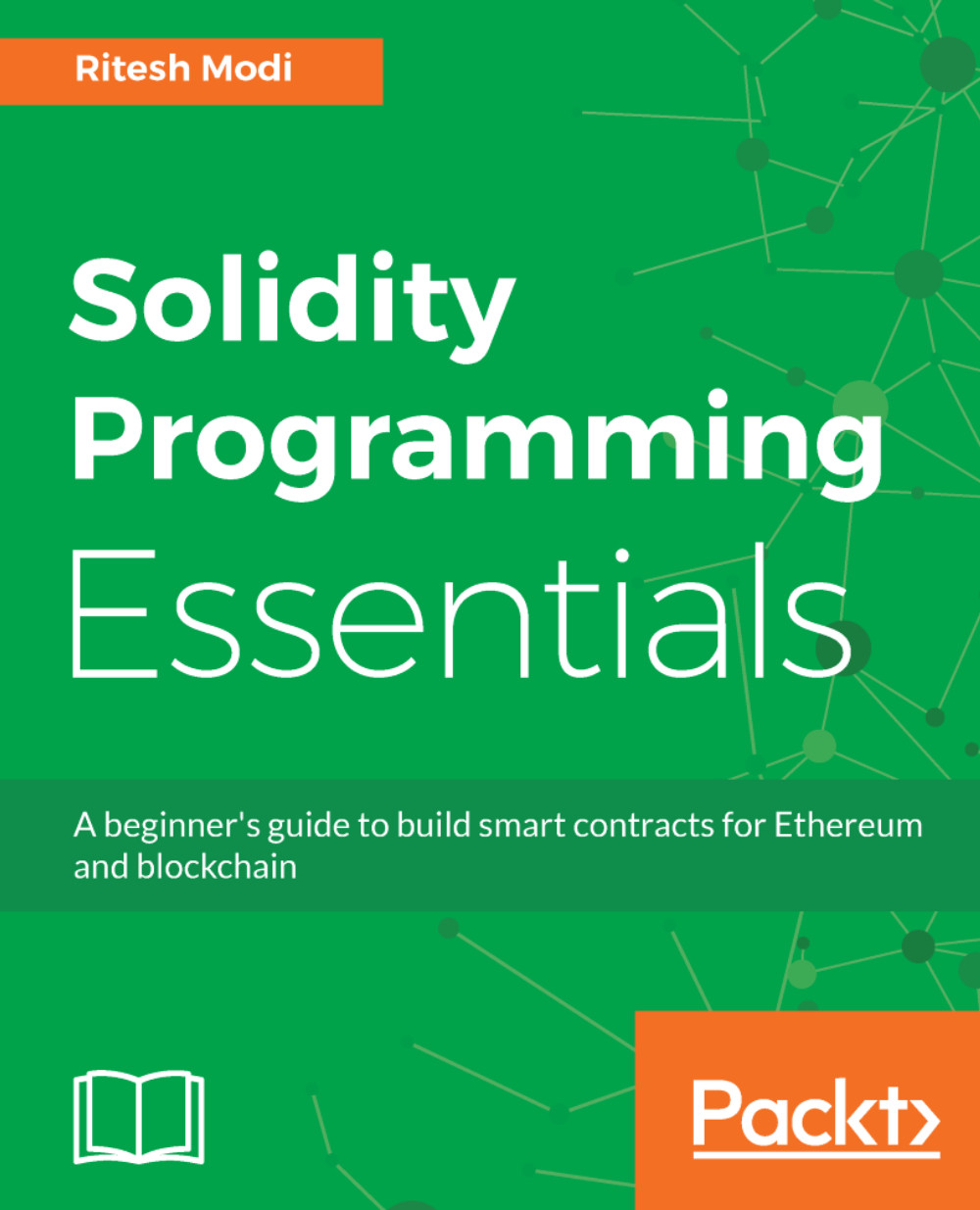-
Book Overview & Buying

-
Table Of Contents

Solidity Programming Essentials
By :

Solidity Programming Essentials
By:
Overview of this book
Solidity is a contract-oriented language whose syntax is highly influenced by JavaScript, and is designed to compile code for the Ethereum Virtual Machine. Solidity Programming Essentials will be your guide to understanding Solidity programming to build smart contracts for Ethereum and blockchain from ground-up.
We begin with a brief run-through of blockchain, Ethereum, and their most important concepts or components. You will learn how to install all the necessary tools to write, test, and debug Solidity contracts on Ethereum. Then, you will explore the layout of a Solidity source file and work with the different data types. The next set of recipes will help you work with operators, control structures, and data structures while building your smart contracts. We take you through function calls, return types, function modifers, and recipes in object-oriented programming with Solidity. Learn all you can on event logging and exception handling, as well as testing and debugging smart contracts.
By the end of this book, you will be able to write, deploy, and test smart contracts in Ethereum. This book will bring forth the essence of writing contracts using Solidity and also help you develop Solidity skills in no time.
Table of Contents (12 chapters)
Preface
 Free Chapter
Free Chapter
Introduction to Blockchain, Ethereum, and Smart Contracts
Installing Ethereum and Solidity
Introducing Solidity
Global Variables and Functions
Expressions and Control Structures
Writing Smart Contracts
Functions, Modifiers, and Fallbacks
Exceptions, Events, and Logging
Truffle Basics and Unit Testing
Debugging Contracts
Other Books You May Enjoy
